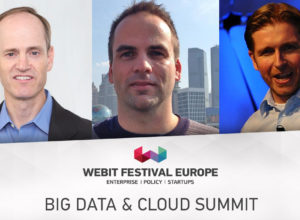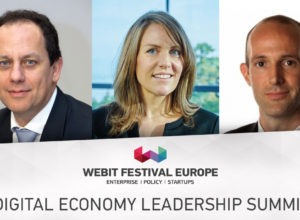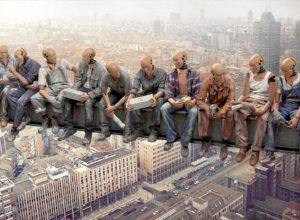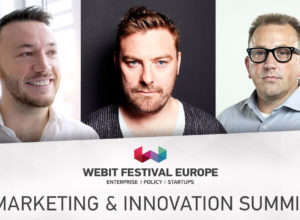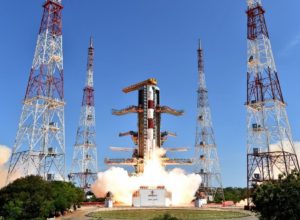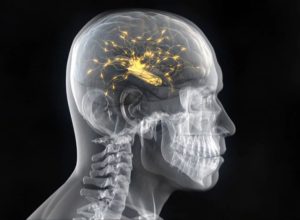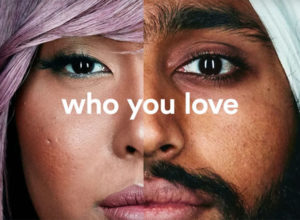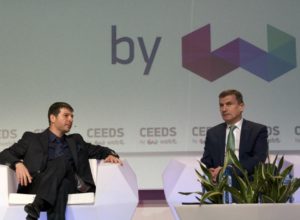Tag: Webit
Webit.Festival will show you how Big Data and Cloud Services are...
We are standing at the start of a giant transformation, that will change every business and aspect of our lives. In the past two years the world has created more data than in the entire previous history of human race.
According to EMC study, the data volumes are growing so fast, that by the end of 2020 we will create 1.7 megabytes of new information every second. By then our digital storage will grow from 4.4 zettabytes today to around 44 zettabytes, or 44 trillion gigabytes.
Right now the Big Data market worldwide stands around $7.6 trillion, which is bigger than the whole fuel industry. This is the reason many experts said that data has finally become the new oil of the world.
In the next few years we expect the number of connected devices worldwide to reach more than 34 billion. This news is more than welcome for the business, because all the gathered information will completely change the way enterprises approach their customers.
The expanding big data comes with adoption of cloud technology and online delivery of hosted services. This enables companies to consume a computing resources, such as virtual machine or storage, rather than having to build and maintain their own computing infrastructures. In 2016 the spending on public cloud infrastructure reached $38 billion, while Forbes predicts that it will grow to $173 billion in 2026.
At this year’s Webit.Festival you can listen to some of the top experts in those innovative fields of digital industry. During the Big Data & Cloud Summit they will share their thoughts on the development of IoT, Artificial Intelligence, Cloud Technology and convergence of cognitive and cloud security as a business enabler.
The Vice President of Cloud and Mobile Technology Strategy at IBM Jonas Jacobi will talk about the power of the combination between AI and IoT and how it will impact our daily lives - both personal and professional.
Meanwhile, the Community Director and Technology Evangelist at TIBCO Kai Waehner will tell the audience about the latest trends in Cloud Native Architectures, Hybrid Integration Platforms and Microservices. He will also talk about Big Data Analytics, Machine Learning and Real Time Event Processing.
IBM’s Chief Information Officer on Cloud & SaaS Operational Services David Cass will explain some of the fundamental digital changes that the world is going through and how the use of Cognitive and Cloud is helping businesses transform themselves and deliver insights not previously available to them.
The CEO and Co-Founder of Resillo Inc. Eric Klinker will share his global forecast for edge computing and will explain why the rapid scaling of systems across every conceivable industry will not accommodate traditional thinking or traditional architectures.
See Europe’s future reinvented at Webit.Festival
The events in Europe over the past few years draw a bleak picture for the overall future of the continent. The refugee crisis, combined with rise of nationalist movements and Britain’s decision to leave the EU expanded the risk factors for the European project.
But The Old Continent can again become the economic juggernaut it once was, as long as it starts using its full potential.
One of the main missions of Webit.Foundation during the last 9 years is creating new opportunities for business and fostering entrepreneurial ecosystem in the Central and Eastern Europe region.
This year’s Webit.Festival Europe will again become a platform for discussion between top level policy makers and business leaders from all over the continent. The Digital Economy Leadership Summit will be chaired by the President of Bulgaria Rumen Radev and co-hosted by the Head of the European Commission Representation in Bulgaria Ognian Zlatev.
The summit’s discussions will focus on the topic of intelligent specialization of the countries in CEE region, that was recently analyzed by Webit’s Executive Chairman Dr. Plamen Russev on his blog.
Meanwhile, the high ranked guests of the event will share their thoughts on topics, such as Cyber Security, Well Being, Ageing and Biotech, Disruptive Legislation and Digital Democracy, Boosting EU Entrepreneurial Ecosystem and Digital Transformation.
On Webit’s stage you can see some of the people, that are shaping the global agenda of World Economic Forum. The head of WEF for Europe and Eurasia Martina Larkin will speak about the Fourth industrial revolution and the way it will alter the way we live, work, and relate to one another.
Her colleague at WEF and Project leader for Fourth industrial revolution Thomas Philbeck will focus on automation and its role on the changes in employment.
The President and Global brand director of Havas Worldwide Jason Jercinovic will share his thoughts about the role of artificial intelligence in modern politics and how AI will be shaping the voter’s profiles in the years to come.
In the Disruptive Legislation Session the EU Commission’s Adviser Ilias Lakovidis will speak about addressing the societal challenges through digital innovation, while the Chief of the Enforcement Bureau within the Federal Communications Commission Travis LeBlanc will tell us what kind of legislation we need in order to build a better future.
The Investment Director of 3TS Capital Partners Marius Ghenea will share his experience about seizing opportunities and avoiding pitfalls both from the point of view of and investor, but also from a founder’s perspective.
Here you can see a full list of the confirmed speakers at Webit.Festival, while here you can get all the information you need about the tickets for the event.
Will taxes on robots save us from the upcoming loss of...
Robots are taking over our jobs and maybe our entire life as we know it. But among the most worried about the coming change is someone, that you may not expect to see there - the most wealthy man in the world Bill Gates.
In an interview with Quarz last week the billionaire said that governments should tax companies that use robots to temporarily slow the spread of automation and fund labour transition to other forms of employment.
According to the co-founder of Microsoft, this could finance the development of jobs, that will not be taken by machines, such as taking care of elderly people or working with children in schools.
Gates took a leftist position on the issue, saying that governments must oversee such programs rather than relying on the business to redirect the employment and help people with lower incomes.
“Certainly there will be taxes that relate to automation. Right now, the human worker who does, say, $50,000 worth of work in a factory, that income is taxed and you get income tax, social security tax, all those things. If a robot comes in to do the same thing, you’d think that we’d tax the robot at a similar level”, he said.The idea for robot taxation is not entirely new. Last June the European Parliament released a draft report on robotics, which warned that artificial intelligence and automation present legal and ethical challenges that could have severe consequences. The document says that within the space of a few decades AI could surpass human brain capacity in a manner which, if not prepared for, could pose a challenge to humanity’s capacity to control its own creation. Among the proposals in the report was the idea to register robots with authorities and to hold them responsible for the damage they cause, such as loss of jobs. This type of taxation is one of the ideas of the surprise front-runner in the French Socialist Party presidential primaries Benoit Hamon for funding a €750 monthly universal basic income for the citizens of the country. But Bloomberg’s columnist Leonid Bershidsky points out that linking basic income to the destructive influence of automation is not supported by data. According to a research he quoted, the ICT capital would have needed to increase several times as fast as it actually has done if it were to account for both the occupational shift and the unemployment growth during the last couple of decades. If you want to keep up with the hottest trends in the world of artificial intelligence Webit.Festival is the right place for you. During our summits, you can listen to top level speakers such as the Partner in IBM Ventures Christoph Auer-Welsbach and the VP & CTO of VMware for EMEA region Joe Baguley.
Learn how to build your marketing strategy from industry’s best at...
Our life today is more dynamic than it was at any point in history and none of our days is like the previous one. In the world of business this new form of operation speed is both a gift and a curse depending on your company’s ability to adapt to the social and economic changes and use the full potential of the new environment.
In 2017 serious marketers use every tool in the kit, from native ads and influencer channels to visual storytelling and now or never expiring content. The biggest trends in the industry will help these expert engage consumers more directly by increasing their marketing reach.
At this year’s Webit.Festival you can listen to some of the top marketers in the world. During the Marketing & Innovation Summit of the event they will share their thoughts on topics, such as Programmatic, Mobile, Video and Native Advertising, Brand Strategies, Metrix & Data, Mobile Marketing, OmniChannel & Personalisation Strategies and Media & Digital Entertainment.
Their insight information will help you transform your business into the enterprise of tomorrow and will give you the best tools to increase your performance.
As more and more brands learn the true value of content, our lives are becoming increasingly over-saturated in information. This means the competition for our attention has never been greater and getting eyes on your content is no longer good enough. The design director of TBrand Studio International Graham McDonnell will tell us more about the importance of the story in storytelling.
The President and Global Brand Director of Havas Worldwide Jason Jercinovic will talk about the rise of Artificial Intelligence and its role in today’s politics and political marketing. Meanwhile, the CMO of Selligent Nick Worth will tell us more about marketing automation and the use of AI.
During the Brand Strategies track, the Chief Creative Officer at DigitasLBi Chris Clarke will tell us more about the death of empathy in marketing and why global brand consistency doesn’t matter anymore. Chris is a member of the Campaign A-List and was recently placed at #53 in The Drum’s Adverati, a list of the most influential people in advertising.
Twice Reply’s Managing director for digital transformation Volker Glaeser will inform you how new innovation processes can change the digital world and what are the most efficient ways of creating and testing future products. The German expert will explain the two most important approaches of today’s leading global innovators - Rapid Prototyping and Constant Beta.
The General manager of Advertising at Phunware Jon Hook will talk about the changing landscape of mobile advertising, what are the best ways to adapt your strategy to that change and where are the biggest gaps when starting a mobile ad tech business.
Meanwhile the Global chief strategy and digital officer at Mindshare Norm Johnston will explain the exploding market of connected devices and how to use the marketing opportunities it brings to better connect and service consumers. In his session, Norm will share examples from his recent book Extra Sense, which illustrate how marketers are exploring the post-mobile third wave of digital marketing.
Here you can see a full list of the confirmed speakers at Webit.Festival, while here you can get all the information you need about the tickets for the event.
Digital assistants are shaping the future of services
Digital transformation is on the rise worldwide and with it comes the increasing pressure on large public institutions and enterprise to become more efficient in their work. This process is closely connected with the development of artificial intelligence technology and digital assistants and has the power to totally transform the public and customer services sector in the years to come.
The IoT technologies made cross-device integration common, while the lines between reality and digital world are more blurred than ever.
Experts predict that in 2017 millions of users around the world will get used to dealing with bots, and synchronizing their lives and operations to include digital assistants.
Microsoft and Google already added powerful AI services to their cloud platforms and now they allow anyone with coding knowledge to create simple chatbots. This means lower financial costs for customer service and saving time from manual operations.
Earlier this week Bloomberg reported that the Chinese phonemaker Huawei is working on its own voice-activated assistant, just like Apple Siri and Amazon Alexa. Initially it will be exclusive for the customers in China. But later this year the company is planning to release a second version of its digital assistant for the US customers of Huawei Mate 9.
Once a standout feature, competitors to Alexa, Siri, and Google Assistant could soon become a crowded market, with companies such as Adobe, Samsung, and potentially even Nokia all planning a hat of their own to throw in the digital assistant ring.
The Chinese search giant Baidu has unveiled its assistant Xiaoyu Zaijia (Little Fish), who responds to voice commands with a combination of pictures, text and speech. It can answer questions, find local services, play music, make video calls and control smart home devices.
According to the company’s chief scientist Andrew Ng AI is the new electricity with its steady growth.
“Every year our AI has been 50% better. Those of us on the inside feel the acceleration now but we have been feeling it for the last decade. Just as 100 years ago the electrification of our society transformed industry after industry, I think AI tech has now reached that stage”, he told BBC.
Gartner predicts that AI will become so important to enterprise that by the end of the year the worldwide spending on IT will reach $3.5 trillion.
If you want to keep up with the hottest trends in the world of this growing industry, then Webit.Festival is the right place for you. During our summits, you can listen to top level speakers such as the Partner in IBM Ventures Christoph Auer-Welsbach and the VP & CTO of VMware for EMEA region Joe Baguley.
India reaches to the stars with the launching of 104 satellites...
Aerospace industry worldwide is experiencing a renaissance, but unlike the space race years during the Cold War, now the innovations come not only from American and Russian government agencies, but also from emerging economies like India.
Just yesterday the Asian country made history by successfully launching 104 satellites on a single mission, surpassing the previous record of 37 satellites, launched by Russia 3 years ago.
Experts say this is a sign that India is emerging as a major player in the multi-billion dollar space market, while the Prime Minister of the country Narendra Modi was among the first to congratulate the team behind the effort. He tweeted that this is another proud moment for the nation’s scientific community.
The main task of the launch was to get the Cartosat-2 Earth-observation satellite in orbit. It is expected to be used for monitoring of India's local rivals - Pakistan and China. The other 103 spacecraft were nanosatellites, provided by countries like Israel, Kazakhstan, the Netherlands, Switzerland, the United Arab Emirates and the United States. 88 of them are owned by the San Francisco company Planet (ex Planet Labs). Their dimensions are just 30 by 10 by 10 centimeters, while their weight is about 4.5 kilograms. Despite the small size, they have sharp vision and can observe the Earth surface with precision. During the last year’s Webit.Festival in Sofia the European Space Agency (ESA) engineer and coordinator Lluc Diaz spoke about the institution’s mutual work with startups, like Planet Labs. The expert explained the benefits from launching small communication satellites, that cost between $10 and $100 million, unlike the big ones for $500 million. The small devices are easier to maintain and can be replaced with new ones when they are hit by space junk for example. Last year 210 satellites weighing less than 50 kilograms were launched this year to do such things as map the Earth, expand broadband access and track packages on shipping vessels. Тhat is up from just 25 launches in 2010. The 2016 number is expected to double in the next five years. If you want to keep up with the hottest trends in the space industry Webit.Festival is the right place for you. During the event, you can find out more about the future of exploration of the Universe from top level speakers, likе the Chairman of Breakthrough Prize Foundation Simon P. Worden. The author of more than 150 scientific papers in astrophysics space sciences and strategic studies will talk about the search of life beyond the Earth and deep space traveling.This remarkable feat by @isro is yet another proud moment for our space scientific community and the nation. India salutes our scientists.
— Narendra Modi (@narendramodi) February 15, 2017
The AI is on the rise, and then follows the singularity
About a decade ago the Ray Kurzweil presented to the world his concept of the singularity, and from today’s point of view this utopian idea looks more real than ever. In his famous book The Singularity is Near, the inventor, futurist and Director of Engineering at Google wrote about the moment, when machine intelligence will surpass our own.
Now the top entrepreneur and visionary Elon Musk is talking about this moment not as something bad, but as a next step in humankind evolution.
The CEO of Tesla and SpaceX told an audience at the World Government Summit in Dubai that over time we will probably see a closer merger of biological and digital intelligence. He explained that humans will need to merge with machines, so that they don’t become useless in an age when AI is widespread among every aspect of our lives.
"Some high bandwidth interface to the brain will be something that helps achieve a symbiosis between human and machine intelligence and maybe solves the control problem and the usefulness problem”, Musk said.
And while this kind of problems may seem too distant, the reality is that the are already a part of our lives. Just the last year a automated Tesla car crashed and killed its test driver. This was the first of its kind tragedy and opened series of ethical dilemmas.
As the self-driving vehicles are going to be the most near term AI innovation that we are going to see, the regulators will have to answer important questions about the responsibility and ethics in this new kind of transportation.
It is a question, first raised by the celebrated science-fiction author Isaac Asimov in his short story Runaround. The futurist revealed an early version of his laws, that states: 1. A robot may not injure a human being or, through inaction, allow a human being to come to harm 2. A robot must obey orders given it by human beings except where such orders would conflict with the First Law 3. A robot must protect its own existence as long as such protection does not conflict with the First or Second Law.
The computer’s victory over a human Go master this past March reminded us of the coming singularity, while the respected Japanese magazine Shukan Shincho predicted that in 2045 a computer with the combined intellectual power of the entire human race would cost around $100.
Although the development of artificial intelligence undoubtedly lead to risks, approaching a moment of singularity can bring unimaginable advances in medicine, economics, government and social spheres, while completely changing the way we live today.
We can expect the merger of humans and machines to bring the next step of our civilization’s evolution and to finally make us interplanetary species - one of the biggest ambitions of Musk’s SpaceX.
If you want to keep up with the hottest trends in the world of artificial intelligence Webit.Festival is the right place for you. During our summits, you can listen to top level speakers such as the Partner in IBM Ventures Christoph Auer-Welsbach and the VP & CTO of VMware for EMEA region Joe Baguley.
Top 5 commercials from the biggest sport event of the year
Any expert in the world will tell l you that in the era of Internet, videos are the best way to advertise your products and services. And hardly the world has a bigger sport for TV commercials than the several hours during the NFL’s Super Bowl.
More than a half of the marketers worldwide name video as the content with best return of investment, while experts forecast that by 2020 it will account for 82% of all consumer internet traffic.
The biggest single event in American sports pulled in 111.3 million viewers in the USA on Sunday night, down slightly from last year’s game numbers.
Despite the epic comeback in the 34-28 overtime win of New England Patriots over Atlanta Falcons, marketers around the world were more interested in the annual Super Bowl commercials, than Tom Brady’s bid for greatest quarterback in the history of the league.
The average spending for a 30-second commercial slot this year was around $5 million. But this is something that most of the biggest companies, that are seeking brand visibility, are willing to pay.
This year the top level marketers in USA tried to reach their audience with a mix of emotional and political messages, that reflects the recent months of turbulence in the American society.
Here are the 5 best ads, aired during Super Bowl 2017:
Airbnb’s “We Accept” message
Audi’s “Daughter”
Budweiser’s tribute to its immigrant co-founder Adolphus Busch
Coca Cola’s “America, the Beautiful”
The Skittles romantic rainbow
If you want to keep up with the hottest trends in the world of marketing Webit.Festival is the right place for you. During the Marketing & Innovations Summit, you can listen to top level speakers such as the Chief Creative Officer at DigitasLBi Chris Clarke, who was recently placed at 53th place in The Drum’s Adverati list of the most influential people in advertising.
How Europe can defend its role as a world economic leader
The global economy becomes increasingly digital and decentralized and only those, who adapt best, will be able to survive in the new world economic order.
Over the next decade the world will have to deal with problems, such as manufacturing automation and changing labour market, rising cyber crime, overpopulation of the planet and the aging population in developed economies.
For the last 12 years European Union’s percentage of the global GDP has fallen from nearly 32% to only about 23%. The main reasons for that are the outsourcing of production and the better position of countries like China and India had for managing the effects of the global economic crisis.
But EU still has the tools to remain a leader of the civilized world and to be the engine of the new digital economy. As long as it starts using the full potential of its member states and expand their economic capabilities in the best way possible, while maximizing their human capital. This can happen through smart specialization and shared goals and vision.
Two years ago the commissioner for digital economy Andrus Ansip forecasted that Europe can achieve a 10% rise in its e-commerce with a digital single market. The former Estonian prime minister was one of the top guests during Webit’s CEEDS event, which was focused on the digital perspectives for the Central end Eastern Europe region.
The idea for a digital single market has become one of the top missions of the European Commission for the years to come and can boost the block’s economy with an annual growth of €165 billion and 1.3% of continent’s GDP.
This year Webit continues its mission of hosting top level policy discussion about the digital future of the continent. The Digital Economy Leadership Summit of this years Webit.Festival will again become a platform for presenting the best ideas for the future development of European industry with a focus on the most disadvantaged regions.
The event will gather some of the most influential policy makers and top level experts, that shape the global agenda of the World Economic Forum, like the Global Leadership Fellow at WEF Thomas Philibeck, the Head of Europe and Eurasia at WEF Martina Larkin,the President & Global Brand Director of Havas Worldwide Jason Jerinovic and the Director General of Digital Europe John Higgins.
They will share their vision and experience in topics, such as automation technologies and the changing balance of the social contract between governments, employers and individuals, how AI is shaping up the profile of the voters and what are the things Europe must do to defend its leadership position under the growing pressures from internal and external events.
